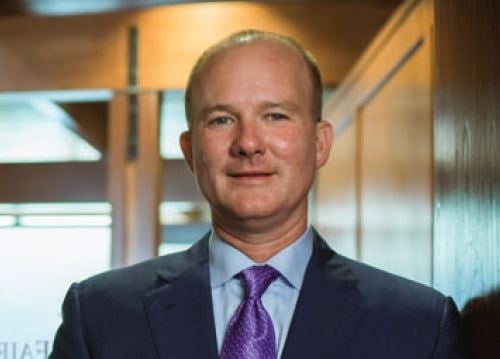

IBA: What is one area of expertise at The Fairly Group?
Alex Fairly: The ideas and expertise that we have developed over the years have come 100% from us looking at where our clients have problems and then attacking those problems. For example, we have a lot of large workers’ compensation clients, and a big piece of workers’ compensation is medical expense. Most people focus on how to keep accidents from happening – which we do – but we also spend time focusing on how our clients can pay less for medical expenses.
There’s a very traditional approach to managing medical costs once you have a medical bill or accident. We decided that we were going to attack the issue of high medical costs, and we built a practice that negotiates medical bills on behalf of our clients. We built a team of people who talk all day to medical providers, hospitals, doctors, etc., to negotiate clients’ bills.
More proactively, we are engaged with our clients in a way that when they do have an accident on the job, we can negotiate all those medical procedures before they are performed. Where a client may get a bill for $20,000 and they end up paying $9,000, our clients may pay only $4,500 or $5,000.
The discounts we receive on those bills outperform the industry norm by 50%, and last year, this practice negotiated almost $1 billion in medical bills for our clients.
IBA: How else is The Fairly Group changing the way risk is managed?
AF: When we go to a prospective client and begin to peel back the layers in a risk audit, we always find opportunity to manage risk differently. But to get better results, companies have to be willing to change some of the things they’re doing that are producing results they are no longer happy with. In this way, we have to change the paradigms to find better results.
Interestingly, the primary inhibitor of progress is that many companies, or sometimes people inside those companies, do not want to change. One of our primary objectives when considering whether to take on a new client is to evaluate their level of discomfort with their current situation. If a prospective client is not willing to change, we politely decline the engagement. A client’s commitment to change and improvement is critically necessary to succeeding.
IBA: What has been a major client challenge in recent years?
AF: We do a lot of work in the professional sports world. There’s a lot of news right now surrounding athletes’ head trauma, specifically in the NFL and the big class-action lawsuit. Head trauma is a really big challenge in our clients’ futures, and there are a lot of questions around how those things will be covered: Is this a liability issue? Is this a workers’ comp issue? How will this be litigated?
It’s a very complicated issue that will go on for decades. When we identify a challenge like for how our clients will deal with it. that, we to go to work to figure out a strategy for how our clients will deal with it.
IBA: What’s your advice for other insurance leaders?
AF: I believe leadership is never about the leader. Great leaders wake up every day thinking about how they can help their people be successful. Leaders who think primarily about themselves don’t do a good job of developing anyone around them. In my role, I come to work every day thinking about my people and how I can serve them. That’s the critical point of leadership to me.
The other thing I would say is that it is very important for leaders to understand their culture, and not just the nice things you say in your mission statement that every company in America says. Those things sound nice, but leaders may not be as committed to them as they should be. So understanding your firm, what you believe in as a leader and what you are willing to defend is very important.
Once you understand that, hire people who fit that model. Every place I go, I’m thinking about finding great people, and when I find them, I hire them. I am not at all surprised our company is doing well, and it is growing because I have an incredible team. It’s not because I’m so smart or a great businessman, it’s because I have the best team, and I would say leaders should never lose track of the fact that their companies are great because of the people, not because of the leaders
